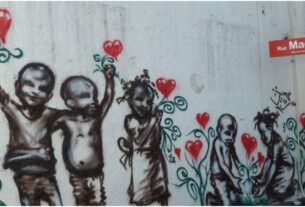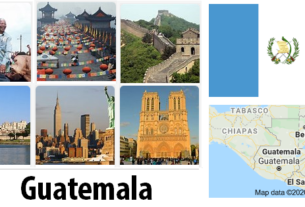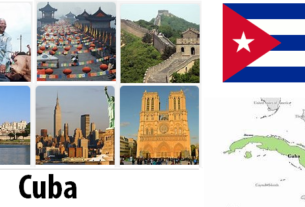Until the fall of the dictatorial regime in 1986, Haiti remained a purely authoritarian state, being considered a nominally republic. Under the current Constitution of 1987, Haiti is a presidential republic based on the principle of separation of powers. Administrative-territorial division – 9 departments: Artibonite, Center, Grand Anse, North, Northeast, Northwest, West, South, Southeast. Departments are divided into districts, districts are divided into communities. Executive power is exercised by the head of state – the president of the republic (since February 2001 – J.-B. Aristide), as well as the government of the country, headed by the prime minister (since March 2002 – Yves Neptune). The President of the Republic is elected by direct, universal and secret suffrage for a term of 5 years under an absolute majority system. The president appoints a representative of the party to the post of prime minister. Check diseaseslearning for political system of Haiti.
Legislature in Haiti. belongs to the parliament – the bicameral National Assembly (110 members), which consists of the Chamber of Deputies (83 mandates) and the Senate (27 members). Deputies are elected for 4 years, and senators for 6 years, renewing their composition every 2 years by 1/3.
The judiciary includes the Supreme, Cassation and Appeal courts, as well as courts of first instance, magistrates’ courts and special tribunals, the composition and functions of which are determined by law.
After the overthrow of the dictatorship in 1986, dozens of political parties and organizations emerged in Haiti: 9 out of 27 are parliamentary. The party in power is the centre-left party of the Lavalas Family, founded by J.-B. Aristide in 1997. In power since 2001. Main opposition parties: Revolutionary National Progressive Party (PANPRA) of the social democratic type (created by S. Gilles in 1989); National Congress of Democratic Movements (CONACOM) – the Social Democratic Party of Haiti, a member of the Socialist International (founded by V. Benois in 1990); party “Democratic Unity” (CD, created by E. Pohl in 2000).
Since February 7, 2001, the government of Aristide, the leader of the ruling party Lavalas Family, has been in power. In the 2000 general election, the Aristide party won 26 out of 27 seats in the Senate and 73 out of 83 seats in the Chamber of Deputies. The victory of the party The Lavalas family met fierce resistance from the united Haitian opposition (more than 20 parties), which challenged both the results of the 2000 parliamentary elections and the legitimacy of the election of the head of state himself.
The confrontation between the government and the opposition, demanding the resignation of Aristide, caused an acute post-electoral conflict in the country, which turned into a protracted political crisis that has paralyzed Haiti for more than 3 years. The crisis situation in the country was aggravated by the international embargo imposed against Haiti by the world community after the disputed elections of 2000. As a prerequisite for the lifting of economic sanctions, the Haitian authorities were recommended to hold new early parliamentary elections before the end of 2003.
In light of this, the main efforts of the Aristide government in the field of domestic policy are aimed at resolving the socio-political crisis, at speeding up a national dialogue with the opposition, which is boycotting the negotiation and electoral process. The confrontation of both sides involved in the political conflict continues to this day.
Closely connected with the search for ways out of the internal political crisis, Aristide’s foreign policy is focused primarily on fulfilling the conditions contained in the OAS resolution in order to unblock the economic embargo and bring the country out of international isolation.
In January 1995, in the course of a radical reform of the Armed Forces, President Aristide disbanded the 7,000-strong Haitian army, which had stained itself with cooperation with duvalism and military regimes. Internal security tasks are performed by the Haitian National Police.
Diplomatic relations with the Russian Federation were established on June 2, 1996 (the Embassy of Haiti is not represented in the Russian Federation).



